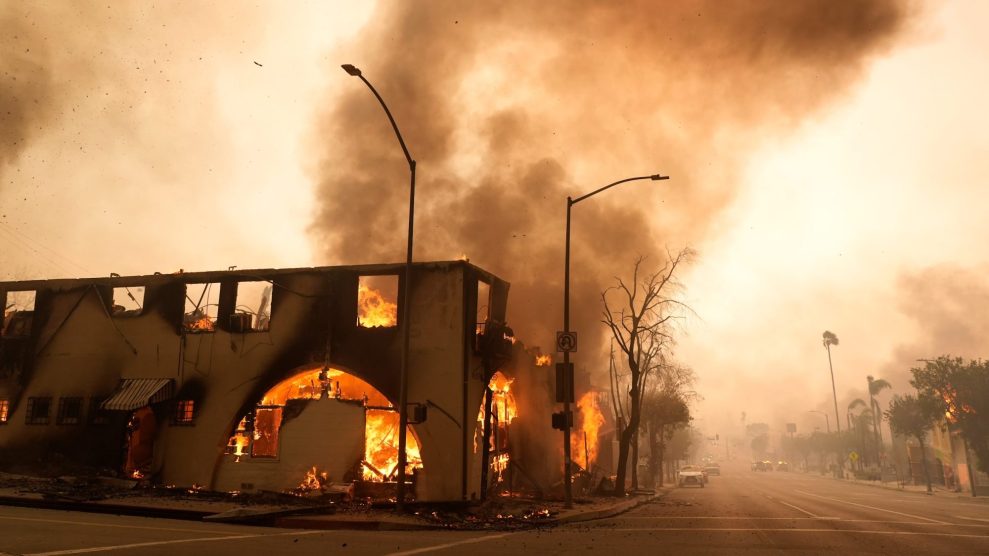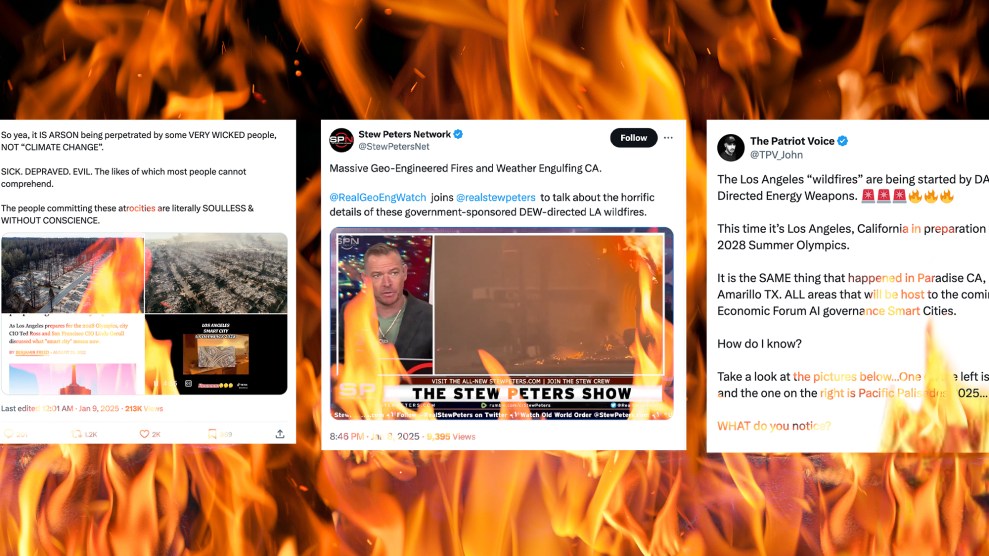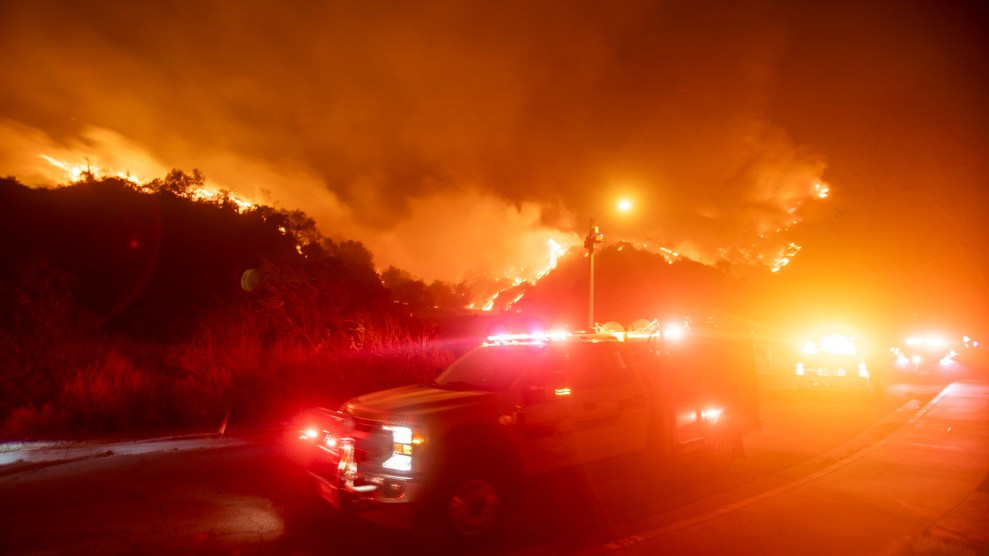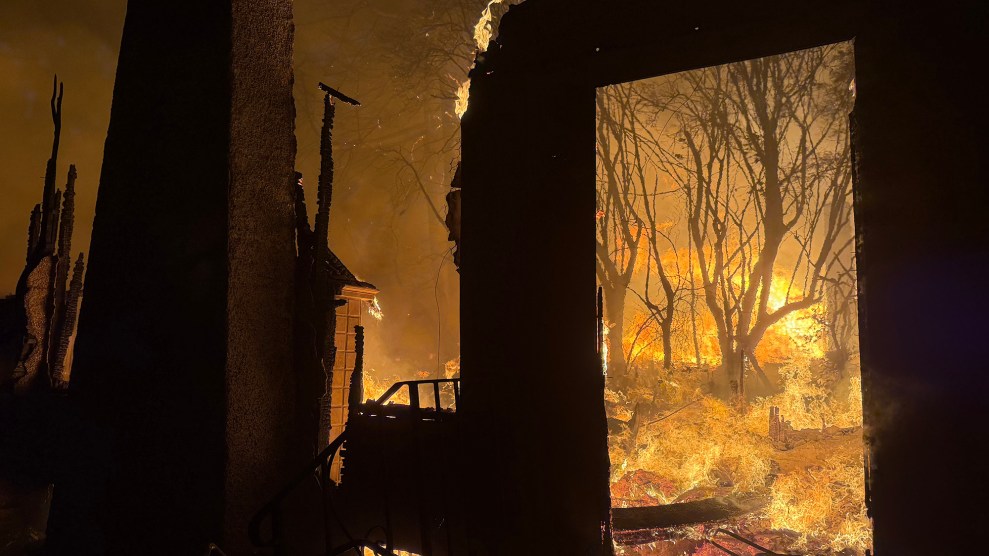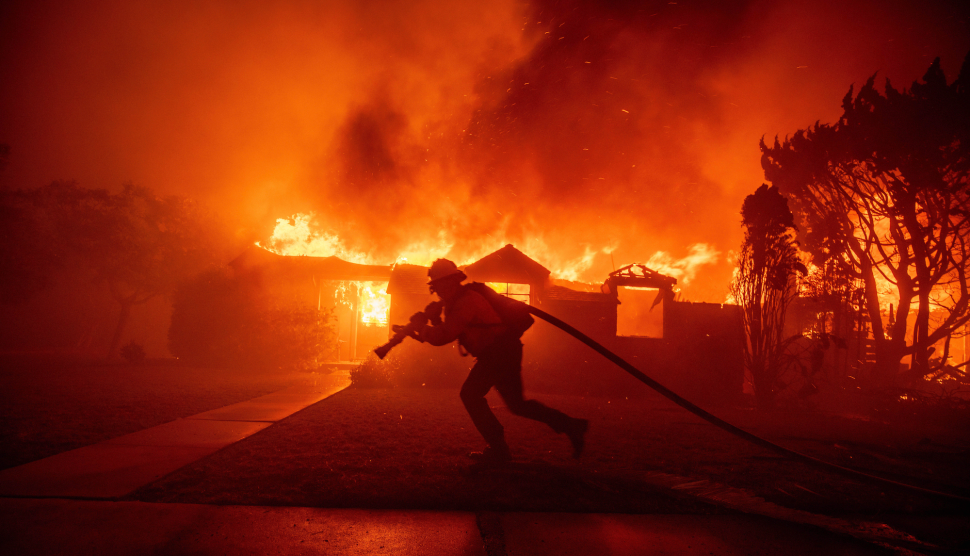Get comfortable: “The first time Al Qaeda in Iraq blows up our embassy in Amman, Jordan, guess what? We’re back in. The first time the Iranian influence becomes so great that they begin to incite and meddle with the Shiites and start causing problems, guess what? We’re gonna be back in.
“I don’t think we’ll end up withdrawing in the sense that everybody’s coming home, because we can’t leave a festering threat in the middle of this region. And obviously, the political will isn’t there to continue the way we’re going. No matter who the presidential candidate is and however Congress comes down, we’re going to find ourselves devolving into what I would call a containment, support, or reinforcing role. And it might look something like this: U.S. forces retain bases in the Kurdish areas and Al Anbar Province. And their rules of engagement, if you will, would be to go after Al Qaeda targets, gain intelligence, help secure the border, and prevent spillover.
“We have to take a stand, and we have to ensure our interests are protected; they’re too important and they reverberate around the globe. Responsible political leaders back here understand that you can’t extract yourself totally from the region. You know, we haven’t left anywhere and come home since the beginning of World War II. We don’t come home anymore.” —General Anthony Zinni (USMC, retired), former CENTCOM commander
whac-a-mole: “When you start to bring forces out from the area, it’s Whac-a-Mole time again. Because it’s going to be easy for these insurgencies to come back unless there is something that is sufficiently powerful to prevent that.” —Judith Yaphe, National Defense University
image problem: “If we withdraw from whatever facilities we have been using in Fallujah and the next day Al Qaeda in Iraq raises the flag of the Islamic Republic of Iraq over the former American headquarters, how is that going to lead on the evening news?” —John Pike, GlobalSecurity.org
yankee come back: “I think Al Qaeda’s game is to, having lost Afghanistan, turn Al Anbar Province into the new Afghanistan. Quite frankly, I think the people in Iraq who are going to be most sorry to see us go are Al Qaeda. We’re the only rationale for them being around. Absent us, they become foreigners.” —Colonel Gary Anderson (USMC, retired), Pentagon consultant
bunkered down: “Even if you reduce, say, to strictly the American parts of the Green Zone and the embassy, you’ve got to at the absolute minimum assign a battalion to protect that. Then there is the infamous road between the airport and the Green Zone—there is no way you can protect that. You’ve got to turn it over to the Iraqis, with whatever consequences you can imagine. Basically, the force is entirely consumed in protecting itself, so it is not a rapid-reaction force for the Baghdad region.” —Thomas Donnelly, American Enterprise Institute
twilight zone: “You can’t defend that embassy because we can’t even defend the Green Zone right now. I don’t think you can keep an embassy open that gets shelled every night.” —Colonel Sam Gardiner (USAF, retired), military analyst and Pentagon consultant
stage presence: “We might continue to base troops in Kuwait. This depends on the overall situation in the region. We will probably retain some presence in Kurdistan, but only enough troops to dissuade Turkish intervention there.” —General Wesley Clark (retired), former supreme allied commander, Europe
Apocalypse Then
Paying the price for American intervention in Vietnam
The pullout: American troop levels peaked in 1969. The United States withdrew in 1973. Saigon fell two years later.
The price: The war cost the United States an estimated $560 to $805 billion (in 2006 dollars). 58,000 Americans were killed. More than 1 million Vietnamese were killed.
The evacuation: When the North Vietnamese Army took Saigon in 1975, the United States had evacuated 130,000 South Vietnamese, including 22,000 U.S. employees and their families.
The aftermath: More than 170,000 North and South Vietnamese died between 1973 and 1975. As many as 165,000 people died in reeducation camps after the North won.
The refugees: More than 1.7 million Vietnamese and more than 1.2 million Cambodians and Laotians fled between 1975 and 2000. By 2000, more than 750,000 Vietnamese had emigrated to America. Almost 400,000 Cambodians and Laotians joined them.
The vets: Twenty years after the war, 15% of Vietnam vets still suffered from ptsd.
containment strategy: “We have to worry about the containment of Iraq to prevent any type of regional spillover. And that is going to require a substantial force presence ground-wise as well as in air capacity to provide surveillance so we could at least mitigate the infiltration of any other fighters.” —Major Daniel Morgan, School of Advanced Military Studies
hidden targets: “I have a little bit of difficulty buying into the argument that we can do a meaningful counterterrorism mission without having many forces in these [Iraqi] cities. Al Qaeda is not going to produce a glamorous, huge target in this scenario. They are going to create a lot of smaller cells and you are going to have a hard time knowing where they are unless you are out there on the street. There is a decent chance that if we largely leave then we will have to accept that Iraq will be a very problematic place that we may not be able to do much about.” —Michael O’Hanlon, Brookings Institution
tunnel vision: “We’re fighting tactically. We interpret victory by body count, by how many cells you break down, how much leadership you kill. Meanwhile, the Osama bin Ladens of the world have this endless flow of angry young men pouring into Iraq willing to blow themselves up. You’re going to make no strategic difference and you’re back to the Vietnam mentality that maybe you can win this war from the bottom up if you can kill enough of them.” —General Anthony Zinni (USMC, retired), former CENTCOM commander
security complex: “You need to be very clear about the difference between limited troop withdrawals, total troop withdrawals, and removing the U.S. advisory effort. We are very intolerant of having to evolve and deal with complexity. That is not part of our national character. That, not these withdrawal scenarios, is what we are going to have to live with.” —Anthony Cordesman, Center for Strategic and International Studies
advise and consent: “It is almost impossible for an outside power to defeat an insurgency. What an outside power can do is enable local forces to defeat a locally developed insurgency. A number of studies, including the Iraq Study Group’s, have suggested that we need more American military advisers in Iraq. I believe that the Army should build that capacity in order to provide the United States with that capability for at least a generation, or as long as the long war lasts.
“In many of the countries challenged by insurgency, the most enduring and the most respected national institution is the army. The Iraqi people, like the American people, have great pride and increasingly great respect for the army. That is especially true if army units are strengthened by the addition of American advisers. I’d build the nation around the army. But the Iraqi Army needs a government that is worthy of the sacrifices it is making.”
Remember the great Lawrence of Arabia quotation, ‘Do not try to do too much with your own hands.’ The less visible the American presence is, the better. The more credit that is given to the host nation government, the host nation security forces, the better. The more capable those forces are, the more capable the government is, the sooner we can go home.” —Lt. Colonel John Nagl, collaborator with General David Petraeus on the Army counterinsurgency field manual
sidelined: “I think if it became a region-wide war and you were looking at a global economic contraction, I think there would be powerful pressures on the developed West to do something. We will have demonstrated by our experience between 2003 and 2008 that the U.S. is ill-equipped to deal with this problem by itself. Should this scenario emerge, we’ll go to our neighbors and allies and try to formulate some sort of Western response.” —Stephen Biddle, Council on Foreign Relations
keep close: “There may well emerge some common [regional] interest, maybe temporary, which would provide for a continuous American presence in Kuwait, maybe something even in Jordan, and in the Kurdish parts of Iraq where American forces would minimize the risk of an Iranian or Turkish collision with the Kurds. Some of the Iraqis themselves might well say, ‘Well, we don’t mind if you leave in a year, but don’t leave completely; let’s have some conditional arrangement.'” —Zbigniew Brzezinski, former national security adviser
lifting stakes: “I firmly believe that the United States should not construct any permanent bases or other military installations in Iraq. We should make clear to the Iraqi people and others in the region that we have no desires to maintain any permanent bases in Iraq.” —Senator Christopher Dodd (D-Conn.)
off base: “The Pentagon has poured an awful lot of concrete in Iraq. They have built a lot of nice facilities. It doesn’t have the air of impermanence. The U.S. military likes having bases that they control, particularly in places where they think there may be a fight.” —Barry Posen, M.I.T. Security Studies Program
looking ahead: “Officially the United States government can legally and credibly claim to be entirely out of Iraq and still have bases and facilities maintained for potential American use in the future. The way they can do that is in large part the way they support themselves now, simply by turning to the private sector. If I were an American company or a largely Iraqi subsidiary of an American company, I’d contract out to do the maintenance on an existing facility to prepare for the day when American forces of some kind will return.” —David Isenberg, British American Security Information Council





